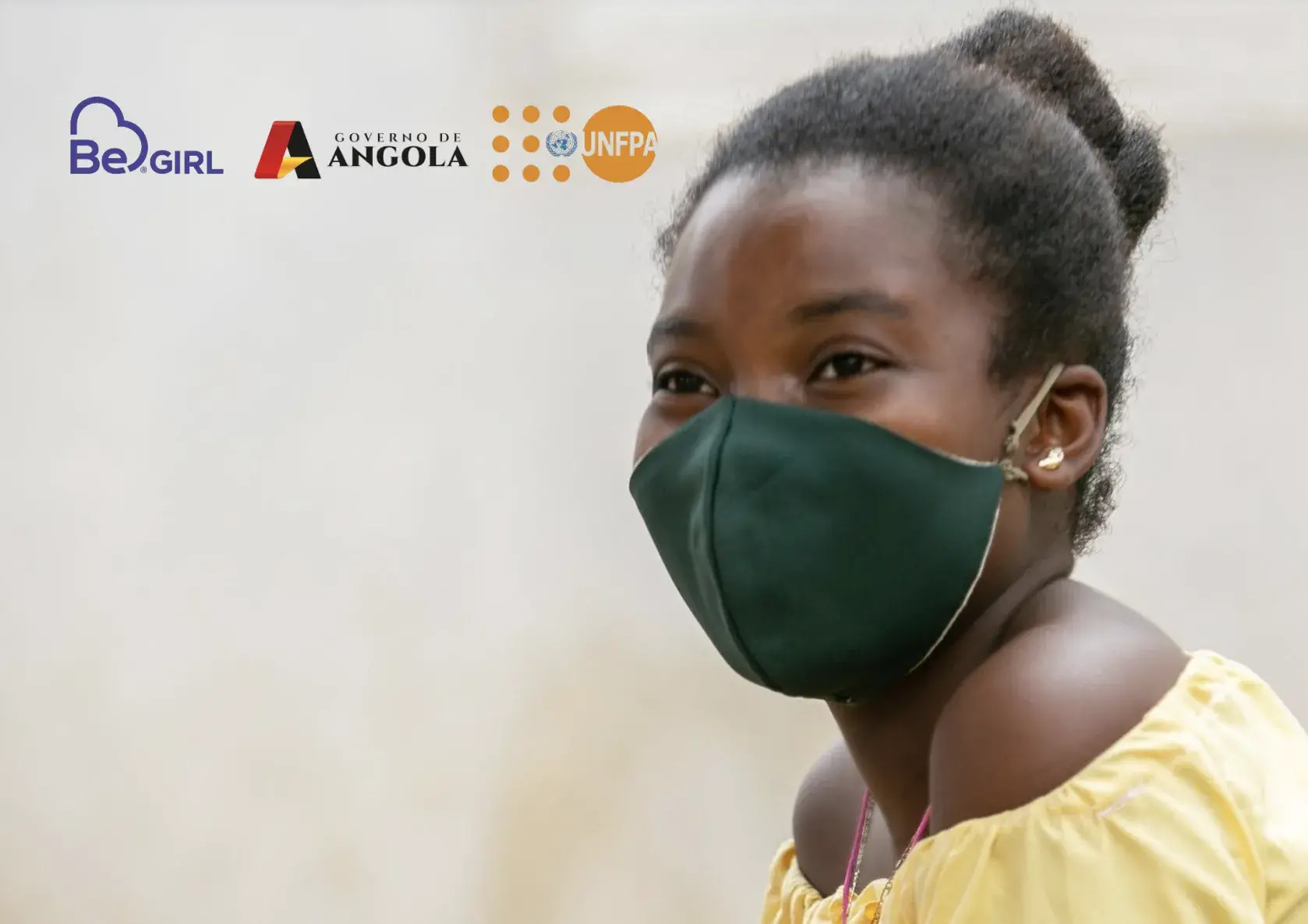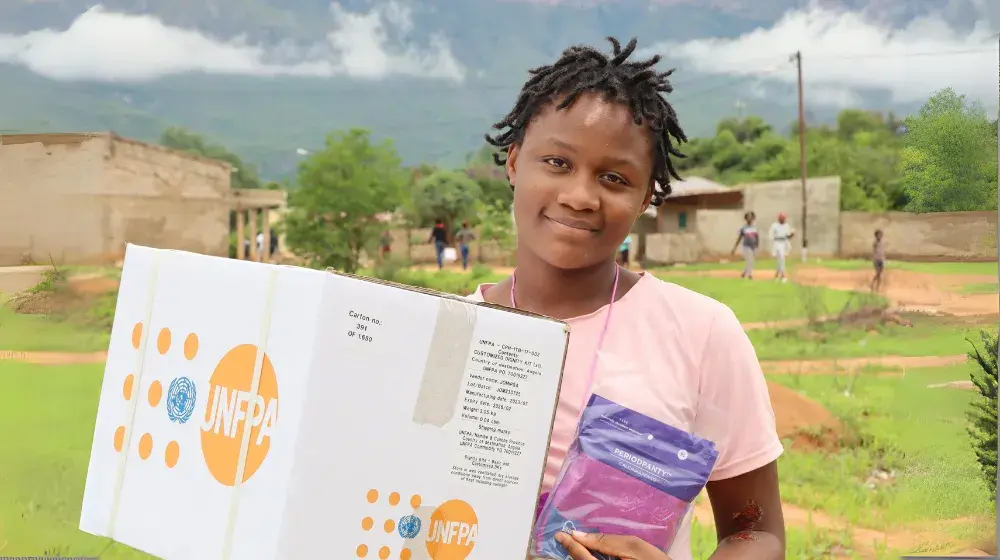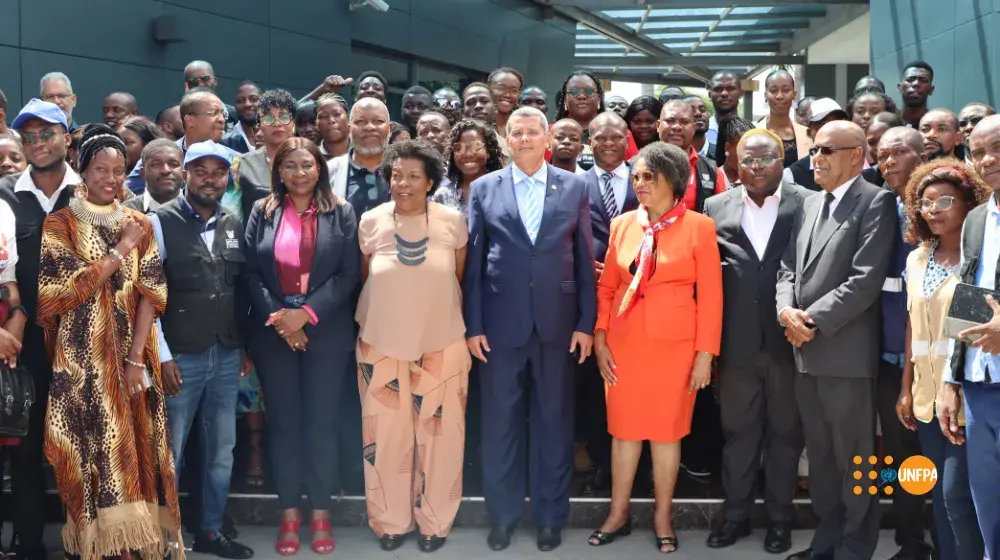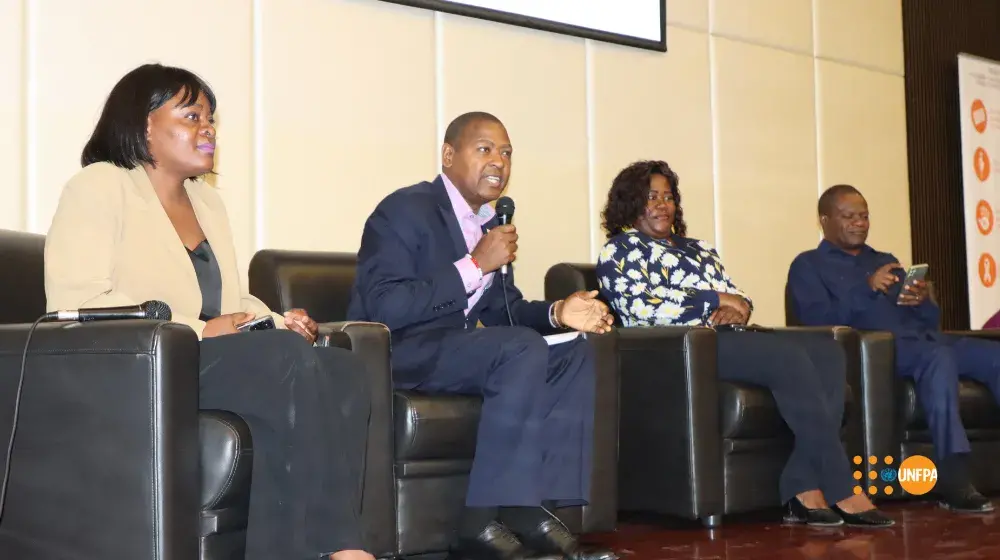The Government of Angola and UNFPA Angola implemented the Menstrual Health Management Pilot Project in partnership with BeGirl Inc. in 4 of the country's 18 provinces (Luanda, Lunda Sul, Huambo and Huíla) to address and identify barriers related to menstruation and whose impact reinforces gender inequalities.
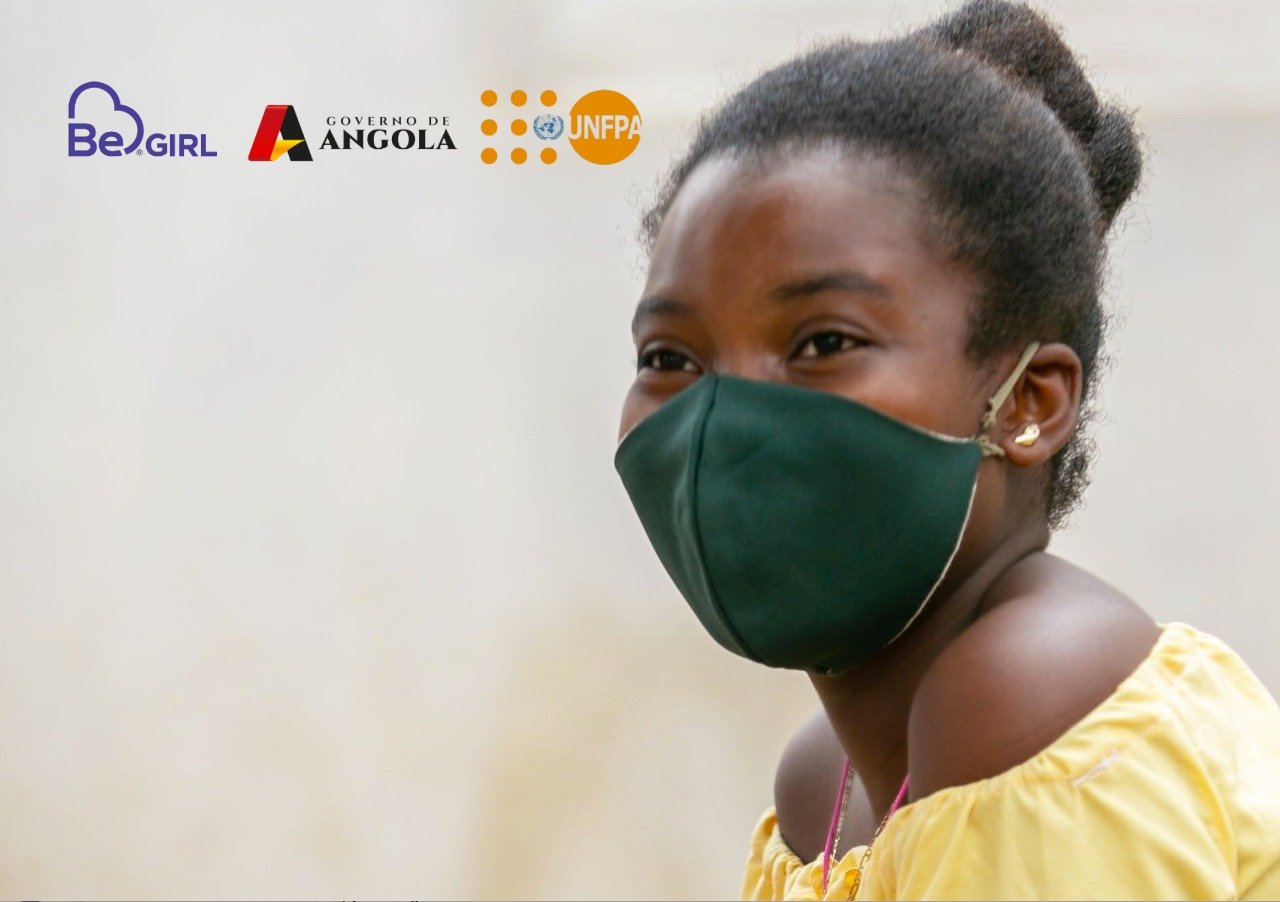
Globally, there are two billion women and girls of menstruating age, 10 million of whom live in Angola.
The beginning of adolescence is a period of rapid changes in a girl's life. Girls often enter this complex stage of life without support or with very little information about what is happening to them and amid widespread stigma and myths about menstruation. It is not surprising that when girls experience their first menstrual cycle - (Menarche), it often marks the starting point for gender disparities, including rigid gender roles in the home, with social norms becoming more noticeable and restrictive .
Good menstrual health management allows women and girls to exercise and enjoy human rights based on equality and dignity. Poor management of menstrual health, including the lack of sanitation, health, bodily autonomy of women and girls, stigmatization and limiting social, cultural or religious practices "can negatively impact the extent to which they limit the exercise of certain rights, including those of access to education, work and health ". Menstrual health is closely linked to people's ability to exercise their human rights.
The Government of Angola and UNFPA Angola implemented the Menstrual Health Management Pilot Project in partnership with BeGirl Inc. in 4 of the country's 18 provinces (Luanda, Lunda Sul, Huambo and Huíla) to address and identify barriers related to menstruation and whose impact reinforces gender inequalities. The program was the first of its kind in Angola, where MHM was not previously a public topic on the national agenda. However, due to UNFPA's advocacy efforts and the innovative nature of the activities presented, the pilot obtained full support from central and municipal authorities and civil society organizations. This participation has meant that schools, churches and civil society organizations have opened up their meeting areas and team time to participate in these trainings that focus on an innovative teaching method that is emotionally engaging and empowers girls and boys while teaching them about menstrual health. As a result, 1,000 girls aged 10 to 16 were equipped with two PeriodPanties ™ (menstrual panties) each, to manage their period safely and comfortably, and 1,000 girls and 1,000 boys received a Smatcycle tool (menstrual watch) to allow them to have a greater knowledge of the various stages of the menstrual cycle; girls and boys were educated using the SmartCycle® education methodology, through the Construction of Empathy Cycles, to improve their knowledge and attitudes about menstruation and reproduction; and data were collected to assess the effectiveness of the pilot intervention, through an Impact Study.
The Impact Study highlighted that one in five girls reported missing school because of menstruation in the last year. Recommendations for the success of an intervention in favor of menstrual health are:
1.Provide biology-based menstrual education to girls and boys from an early age
(preferably before menarche).
2. Involve parents, teachers, community leaders and teenagers themselves in educational efforts on menstruation.
3. Provide girls with sustainable access to reliable menstrual products.
4. At the national level, advocate for increased collaborative efforts in the generation of evidence and programs on menstrual health.

